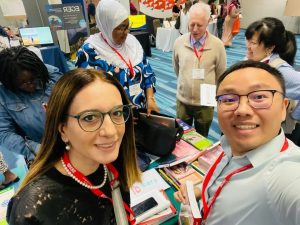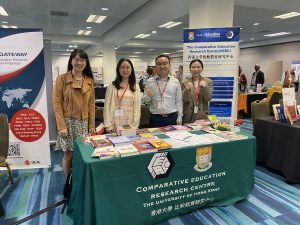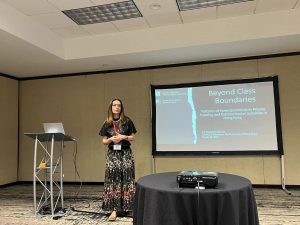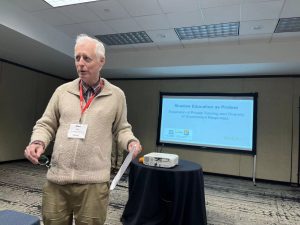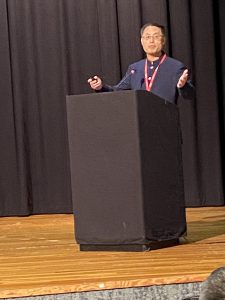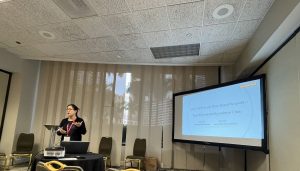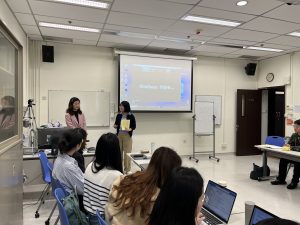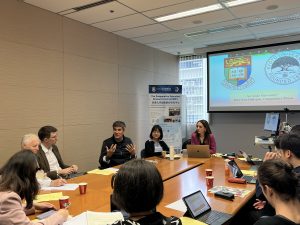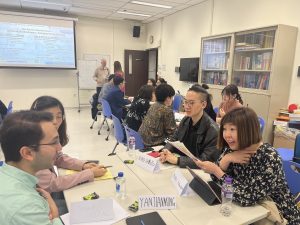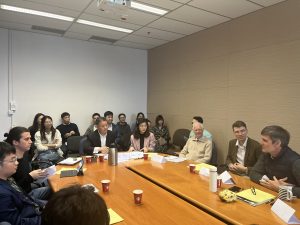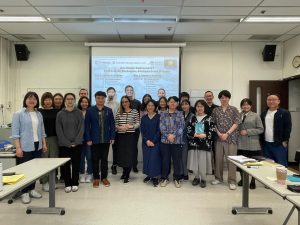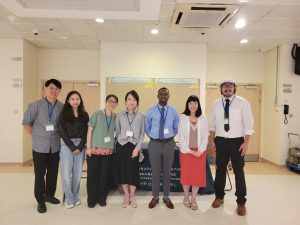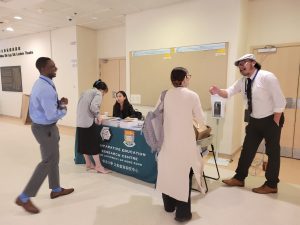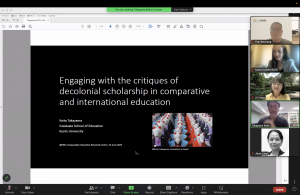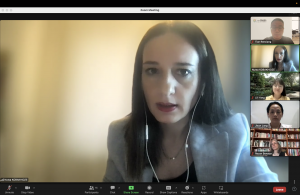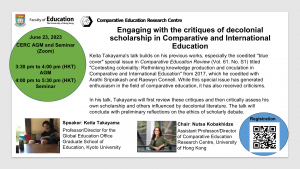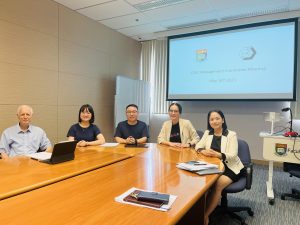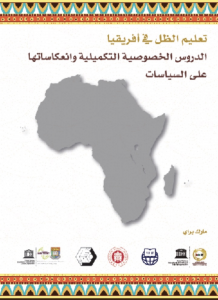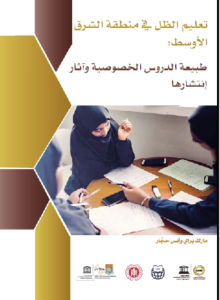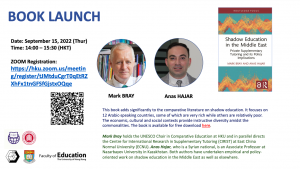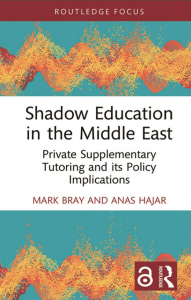From March 10th to 14th, CERC made noticeable presence at the CIES 2024 conference in Miami. The CERC team actively participated in the event, engaging in various activities that showcased their expertise and contributions to the field of comparative education.
One of the highlights of CERC’s presence at the conference was the establishment of a captivating book table. Displaying a wide array of publications from CERC’s book series, the book table attracted attendees who were eager to explore the latest research and publications in comparative education. CERC members were present at the table, engaging in fruitful discussions and exchanging ideas with conference participants from all over the world.
In addition, CERC members took an active role in the conference sessions, both as chairs and presenters. Their involvement spanned across diverse topics, reflecting the breadth and depth of their research interests. Attendees had the opportunity to learn from CERC scholars as they shared their insights and findings on various aspects of comparative education.
The CERC team’s presence at the conference not only highlighted their commitment to advancing comparative education but also underscored their dedication to fostering academic dialogue and collaboration. Through their active involvement, CERC continues to strengthen its position as a leading research center in the field of comparative education in Southeast Asia.


